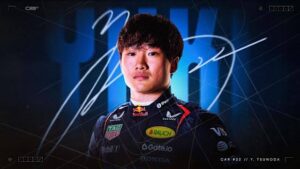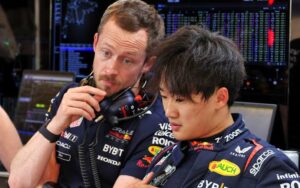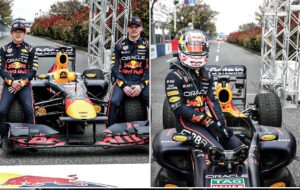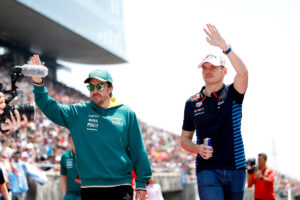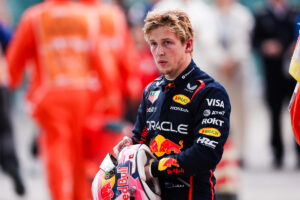F1 NEWS: Ferrari Double DSQ Called ‘Too Severe’ as FIA Warning S…read more

Ferrari Double Disqualification Deemed ‘Too Severe’ as Calls Grow for FIA Warning System
Ferrari’s double disqualification from the 2025 Chinese Grand Prix has ignited controversy, with former Ferrari driver Rene Arnoux arguing that the punishment was excessively harsh. Arnoux has suggested the introduction of a warning system for minor technical infractions, rather than immediate disqualifications that drastically impact race results.
Ferrari’s Costly Double DSQ
Both Charles Leclerc and Lewis Hamilton were stripped of their finishing positions in Shanghai after post-race technical inspections found their cars to be non-compliant with FIA regulations though for separate reasons.
Leclerc, who finished fifth, was disqualified after his car was found to be a kilogram under the 800kg minimum weight limit. Ferrari had replaced damaged parts with identical components, as permitted under the rules, but the car remained too light. With no mitigating circumstances, the team accepted full responsibility for the error.
Meanwhile, Hamilton’s disqualification stemmed from excessive wear on his car’s underfloor skid plank. The FIA mandates a minimum thickness of 9mm, but Hamilton’s skid plank was found to be worn down to 8.5mm in certain areas. Ferrari insisted there was no intent to gain a competitive advantage, stating, “We will learn from what happened today and make sure we don’t make the same mistakes again. Clearly, this is not how we wanted to end our Chinese GP weekend, neither for ourselves nor for our fans whose support is unwavering.”
Arnoux Calls for a Fairer System
Arnoux, a three-time Grand Prix winner for Ferrari in the mid-1980s, believes such infractions while technically in breach of regulations should not lead to an outright disqualification for a first offence. He has proposed a ‘first warning’ system, where minor technical violations that do not provide a clear performance advantage result in a suspended penalty instead of immediate exclusion from the results.
“The rules are the rules, but sometimes you need to apply common sense,” Arnoux said. “Ferrari did not gain a real advantage from these issues, yet both cars were disqualified. A warning system would give teams a chance to correct such minor mistakes without ruining an entire weekend.”
FIA Under Pressure to Review Regulations
The debate highlights broader concerns about the FIA’s strict approach to technical infringements, with critics arguing that disqualifications for minor infractions disproportionately punish teams and drivers. While the governing body has historically enforced regulations with zero tolerance, growing calls for reform could prompt discussions on a more flexible penalty structure.
With Formula 1 heading into an era of increasing technological complexity and tighter performance margins, the FIA may need to reconsider how it applies penalties to ensure both fairness and regulatory integrity.

